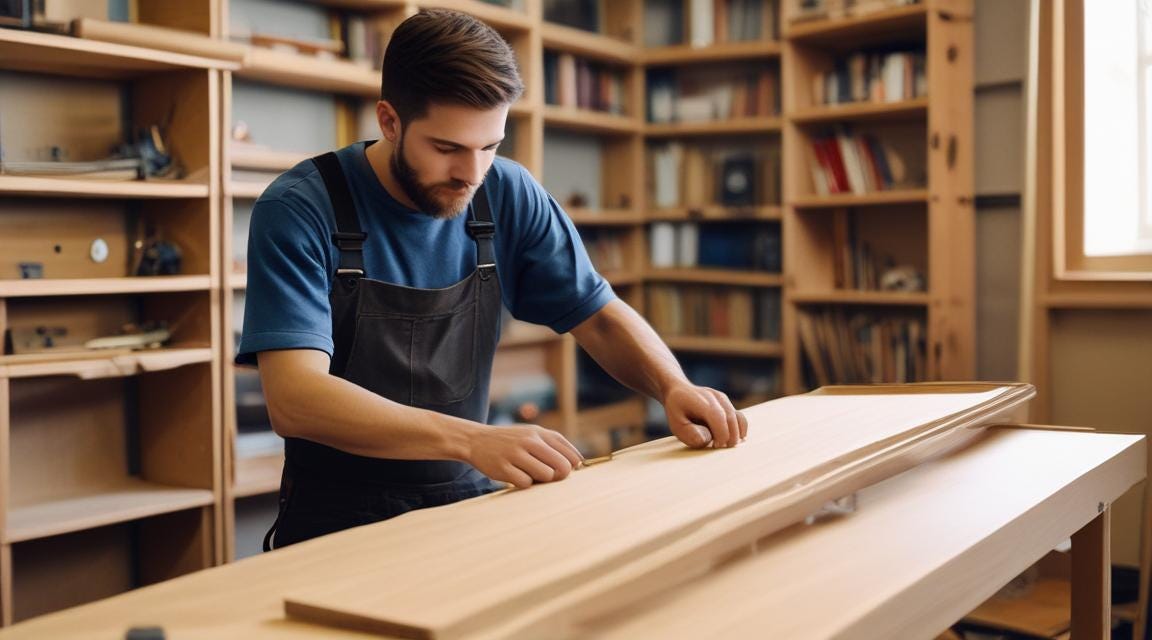I did something I never I’d be able to do the other day.
I built a bookcase.
And when I say built, I don’t mean assembled. I’ve done that before. I mean, quite literally, built: I went to the store, bought wood and tools, looked up plans, and did my best.
It’s complete. It took me hours, but I did it. And it’s standing — and level. Which means I can use it.
I need to do a few more things: staining, adding feet, nailing a plywood back. But I’m pleased. I took myself out of my comfort zone. And I’ve discovered a new hobby, too, one I think I’d like to continue to pursue and perhaps master.
As a writer and poet, I’m always looking for things to compare to my profession and my art. I’ve had great conversations with chefs about how cooking and writing are, in fact, quite similar. I was able to see that there are a lot of similarities with writing and woodworking, though sitting down to write a poem or story or essay involves far less math.
Both, of course, are crafts. One uses words and the other uses wood, but the process is the same. And there is also a kind of precision in both. When sitting down to write a poem or story or essay, every word has to count. It has to matter. A wasted word will gum up the flow of a sentence or stanza, thereby throwing off the reader, rending his or her experience of the work subpar. It’s the same with woodworking, although woodworking is more mathematical. Every measurement must count. Otherwise, your project won’t be level. It’ll bend. And it won’t be useful.
I’m finding that my sustained focus on this project has done a few things. One, it has given me a better sense of how to be “handy,” since I am a relatively new homeowner. Two — and this is the one that has been somewhat surprising — it has given me a burst of creative energy. I’ve been significantly more productive since having started this woodworking project. I’ve done a few poems, this short essay, and I’m planning on more.
I’m going to keep building — in a variety of ways.





